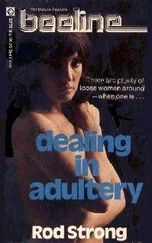Vladimir Nabokov - Strong opinions
Здесь есть возможность читать онлайн «Vladimir Nabokov - Strong opinions» весь текст электронной книги совершенно бесплатно (целиком полную версию без сокращений). В некоторых случаях можно слушать аудио, скачать через торрент в формате fb2 и присутствует краткое содержание. Город: New York, Год выпуска: 1990, Издательство: First Vintage International Edition, Жанр: Классическая проза, на английском языке. Описание произведения, (предисловие) а так же отзывы посетителей доступны на портале библиотеки ЛибКат.
- Название:Strong opinions
- Автор:
- Издательство:First Vintage International Edition
- Жанр:
- Год:1990
- Город:New York
- ISBN:нет данных
- Рейтинг книги:4 / 5. Голосов: 1
-
Избранное:Добавить в избранное
- Отзывы:
-
Ваша оценка:
- 80
- 1
- 2
- 3
- 4
- 5
Strong opinions: краткое содержание, описание и аннотация
Предлагаем к чтению аннотацию, описание, краткое содержание или предисловие (зависит от того, что написал сам автор книги «Strong opinions»). Если вы не нашли необходимую информацию о книге — напишите в комментариях, мы постараемся отыскать её.
Strong opinions — читать онлайн бесплатно полную книгу (весь текст) целиком
Ниже представлен текст книги, разбитый по страницам. Система сохранения места последней прочитанной страницы, позволяет с удобством читать онлайн бесплатно книгу «Strong opinions», без необходимости каждый раз заново искать на чём Вы остановились. Поставьте закладку, и сможете в любой момент перейти на страницу, на которой закончили чтение.
Интервал:
Закладка:
Well, so it goes, yet another plane of life has been slightly displaced, yet another habit — the habit (one's own) of (another person's) existence — has been broken. There is no consolation, if one starts to encourage the sense of loss by one's private recollections of a brief, brittle, human image that melts like a hailstone on a window sill. Let us turn to the poems.
* An emigre daily in Paris before World War II.
(This article, signed «V. Sirin», the penname I used in the twenties and thirties, in Berlin and Paris, appeared in the emigre literary magazine Sovremennyya zapiski, LIX, 1939, Paris. I have clung closely to my tortuous Russian text in the present translation into English.)
SARTRE'S FIRST TRY
Nausea. By JeanPaul Sartre. Translated by Lloyd
Alexander. 238 pp. New York: New Directions, 1949
Sartre's name, I understand, is associated with a fashionable brand of cafe philosophy, and since for every so-called «existentialist» one finds quite a few «suctorialists» (if I may coin a polite term), this made-in-England translation of Sartre's first novel, La Nausee (published in Paris in 1938) should enjoy some success.
It is hard to imagine (except in a farce) a dentist persistently pulling out the wrong tooth. Publishers and translators, however, seem to get away with something of that sort. Lack of space limits me to only these examples of Mr. Alexander's blunders.
1. The woman who «s'est offert, avec ses economies, un jeune homme» (has bought herself a young husband with her savings) is said by the translator (p. 20) to have «offered herself and her savings» to that young man.
2. The epithets in «If a Vair souffreteux et mauvais» (he looks seedy and vicious) puzzled Mr. Alexander to such an extent that he apparently left out the end of the sentence for somebody else to fill in, but nobody did, which reduced the English text (p. 43) to «he looks».
3. A reference to “ce pauvre Gbebenno» (French writer) is twisted (p. 163) into «Christ . . . this poor man of Gehenna».
4. The “foret de verges” (forest of phalli) in the hero's nightmare is misunderstood as being some sort of birch wood.
Whether, from the viewpoint of literature, La Nauseewas worth translating at all is another question. It belongs to that tenselooking but really very loose type of writing, which has been popularized by many second-raters — Barbusse, Celine, and so forth. Somewhere behind looms Dostoevski at his worst, and still farther back there is old Eugene Sue, to whom the melodramatic Russian owed so much. The book is supposed to he the diary («Saturday morning», «11.00 p.m». — that sort of dismal thing) of a certain Roquentin, who, after some quite implausible travels, has settled in a town in Normandy to conclude a piece of historical research.
Roquentin shuttles between cafe and public library, runs into a voluble homosexual, meditates, writes his diary, and finally has a long and tedious talk with his former wife, who is now kept by a suntanned cosmopolitan. Great importance is attached to an American song on the cafe phonograph: «Some of these days you'll miss me, honey». Roquentin would like to be as crisply alive as this song, which «saved the Jew [who wrote it] and the Negress [who sang it]» from being «drowned in existence».
In an equivocal flash of clairvoyance (p. 235) he visualizes the composer as a clean-shaven Brooklynite with «coal-black eyebrows» and «ringed fingers», writing down the tune on the twenty-first floor of a skyscraper. The heat is terrific. Presently, however, Tom (probably a friend) will come in with his hip flask (local color) and they will take swigs of liquor («brimming glasses of whisky» in Mr. Alexander's lush version). I have ascertained that in reality the song is a Sophie Tucker one written by the Canadian Shelton Brooks.
The crux of the whole book seems to be the illumination that comes to Roquentin when he discovers that his «nausea» is the result of the pressure of an absurd and amorphous but very tangible world. Unfortunately for the novel, all this remains on a purely mental level, and the discovery might have been of some other nature, say solipsistic, without in the least affecting the rest of the book. When an author inflicts his idle and arbitrary philosophic fancy on a helpless person whom he has invented for that purpose, a lot of talent is needed to have the trick work. One has no special quarrel with Roquentin when he decides that the world exists. But the task to make the world exist as a work of art was beyond Sartre's powers.
[The New York Times Book Review, when publishing this piece in its issue of April 24, 1949, left out my fourth example of Mr. Alexander's blunders. From Ithaca, N. Y., where I was teaching at Cornell University, I immediately propelled a fierce telegram accusing the editor of having disfigured my article. On Monday, April 25, I delivered my third and last lecture on Turgenev's Fathers and Children. On Tuesday night we had guests at our dreadfully dratty dacha on steep Seneca Street (Lloyd Alexander would have glossed: Lucius Annaeus). I regaled them with a copy of that violent wire. One of my colleagues, a tense young scholar, observed with a humorless chuckle: «Yes, of course, that's what you would want to have sent, as we all must have wanted in many similar cases». My retort, I thought, was not unfriendly, but my wife said later I could not have been ruder. On Wednesday I started to analyze, before a torpid class full of vernal languor, Tolstoy's Death of Ivan Ilyich. On Thursday I got a letter from The New York Times Book Review explaining their action by «considerations of space» I have now reinstated the missing passage from a note in my files. I do not know if the editor was sufficiently farsighted to preserve my typescript and telegram. According to the italicized bit at the bottom of the piece: «Mr. Nabokov is the author of The Real Life of Sebastian Knight» — which had been published by New Directions.]
POUNDING THE CLAVICHORD
The author of a soon-to-be-published translation may find it awkward to criticize a justpublished version ot the same work, but in the present case I can, and should, master my embarrassment; for something must be done, some lone, hoarse voice must be raised, to defend both the helpless dead poet and the credulous college student from the kind of pitiless and irresponsible paraphrast whose product * I am about to discuss. [* Alexander Pushkin, Eugene Onegin. A new translation in the Oucgui stanza with an introduction and notes by Waller Arndt. A Dutton paperback, New York, 1963.]
The task of twisting some five thousand Russian iambic tetrameters, with a rigid pattern of masculine and feminine rhymes, into an equal number of similarly rhymed English iambic tetrameters is a monstrous undertaking, and I who have limited my efforts to a plain, prosy, and rhymeless translation of Eugene Onegin feel a certain morbid admiration for Mr. Arndt's perseverance. A sympathetic reader, especially one who does not consult the original, may find in Mr. Arndt's version more or less sustained stretches of lulling poetastry and specious sense; but anybody with less benevolence and more knowledge will see how patchy the passable really is.
Let me, first of all, present side by side a literal translation of two stanzas (Six: xxxvixxxvii) and Mr. Arndt's version. It is a sample of one of those passages in his work that are free from howlers, and that llie passive reader (the pet of progressive educators) might accept as a tolerable translation:
1. My friends, you're sorry for the poet
My friends, you will lament for the poet
2. in the bloom of glad hopes,
Who, flowering with a happy gift
3. not having yet fulfilled them for the world,
Читать дальшеИнтервал:
Закладка:
Похожие книги на «Strong opinions»
Представляем Вашему вниманию похожие книги на «Strong opinions» списком для выбора. Мы отобрали схожую по названию и смыслу литературу в надежде предоставить читателям больше вариантов отыскать новые, интересные, ещё непрочитанные произведения.
Обсуждение, отзывы о книге «Strong opinions» и просто собственные мнения читателей. Оставьте ваши комментарии, напишите, что Вы думаете о произведении, его смысле или главных героях. Укажите что конкретно понравилось, а что нет, и почему Вы так считаете.










